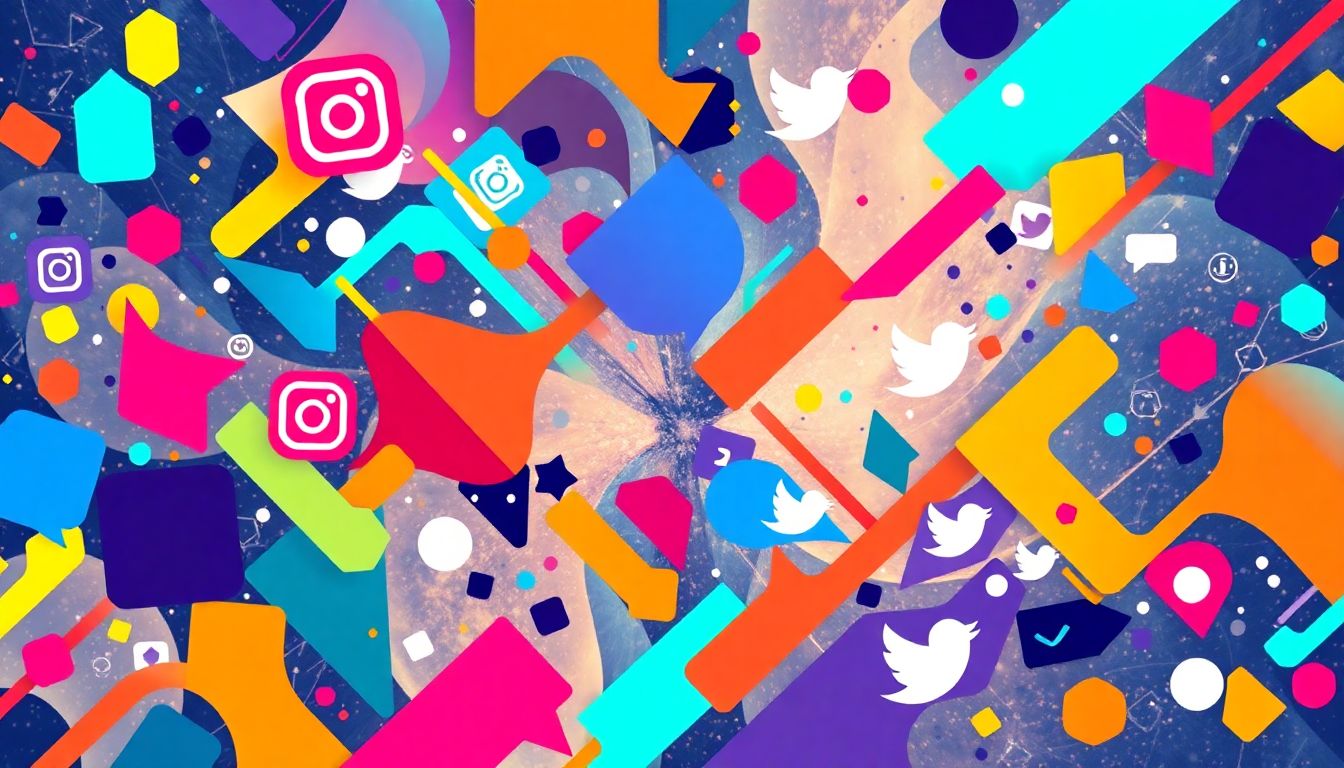
Social media usage has skyrocketed, with over 4.7 billion users globally. This staggering number reshapes visual culture, making graphic design more accessible and dynamic than ever. Social media plays a crucial role in spreading and shaping graphic design trends, influencing what we see and create daily. Platforms like Instagram and Pinterest act as both trendsetters and amplifiers, affecting everything from colour choices to typography.
The Rise of Visual Platforms: Instagram & Pinterest
Instagram's Influence on Aesthetics
Instagram, with its visually driven format, has significantly influenced design aesthetics. The platform favours stunning images, leading to a rise in minimalism and bold colours. A survey found that approximately 80% of users follow brands on Instagram, showcasing its importance as a marketing and design inspiration tool. Trends such as pastel colour schemes and vibrant photography were popularized through countless posts, creating a visual language that resonates with users.
Pinterest as a Trend Forecasting Tool
Pinterest serves as an essential tool for anticipating design trends. Its visual search features and boards offer designers insights into emerging styles. For example, the popularity of "Cottagecore" aesthetics can be traced back to Pinterest boards filled with rural imagery, soft colours, and natural elements. Brands utilize these insights to create content that aligns with current trends.
Case Study: Successful Brand Example
A notable example is the fashion brand Glossier. They have built a robust presence on Instagram, emphasizing user-generated content and community engagement. Their minimalist design approach, characterized by soft colour palettes and clean lines, aligns with trends found on both Instagram and Pinterest, showcasing how effective social media can be for creative inspiration.
Social Media's Impact on Typography and Font Choices
The Trend of Custom Fonts
Social media has spurred an increasing demand for custom fonts. Designers aim for unique typography to stand out in crowded feeds. Popular custom fonts, such as "Bebas Neue" and "Montserrat," have gained fame, appearing widely across various platforms. These fonts enhance visual identity and brand recognition.
Readability vs. Aesthetics
A balancing act exists between creating appealing typography and ensuring readability. On platforms like Instagram and Twitter, where quick scrolling is common, designers often face challenges. Fonts must not only capture attention but also maintain clarity in concise messaging.
Expert Quote
Graphic designer and typography specialist, Jessica Walsh, states, "In the age of social media, Typography isn’t just about aesthetics; it’s about instant comprehension and engagement."
Color Palette Trends Driven by Social Media
Trending Color Palettes
Social media continuously introduces new colour trends. The "Muted Earth Tones" palette, for example, has seen a surge in popularity, complementing the overall aesthetic found across platforms. Tools like Pantone’s Colour of the Year often reflect what’s trending on social media, guiding designers in their choices.
The Impact of Seasonal Trends and Holidays
Seasonal events also drive colour trends. For instance, autumn months bring rich oranges, deep reds, and golden yellows to the forefront, while summer often features vibrant blues and greens. Designers strike to align their palettes with these seasonal moods for better engagement.
Brand Identity and Social Media Aesthetics
Brands use social media to convey their unique identity through consistent colour use. Companies like Airbnb utilize a distinctive colour palette across platforms, ensuring that their aesthetic remains recognizable.
Social Media's Role in the Democratization of Design
Accessibility to Design Tools and Resources
Social media democratizes design by providing an array of tools and resources. Platforms like Canva offer templates, enabling users to create stunning graphics without expansive design skills. This accessibility fosters creativity and innovation among users.
The Rise of User-Generated Content
User-generated content (UGC) significantly impacts trends. When users share their designs or artwork, they create a sense of community and inspiration. Brands can refine their visual identity by analyzing UGC trends.
Independent Designers and Social Media Marketing
Independent designers harness social media for promotion, allowing them to showcase their work and build networks. This connectivity has increased visibility, enabling them to thrive in a competitive industry.
The Future of Graphic Design in the Age of Social Media
Predicting Future Trends
Looking ahead, emerging trends in graphic design will likely center around sustainability and inclusivity. Social media usage hints at a growing need for designs that reflect diverse voices, creating designs for wider audiences.
The Ethical Considerations of Social Media's Influence
However, social media’s influence isn’t free from criticism. The risk of homogenization arises as trends cycle quickly, potentially stifling originality. Designers must navigate these waters with care to maintain creative diversity.
Actionable Tips for Designers
Graphic designers can harness social media by:
- Following industry leaders for insight.
- Participating in design challenges.
- Engaging in trend discussions within communities.
Conclusion
Social media significantly impacts graphic design trends by shaping aesthetics, typography, and colour palettes. Its role in democratizing design creates opportunities for independent artists and established brands alike. As the relationship between social media and graphic design evolves, staying attuned to these changes is vital for any designer aiming to remain relevant in this vibrant, ever-changing landscape. Embrace the future and see where social media can take your creative journey.





0 Comments